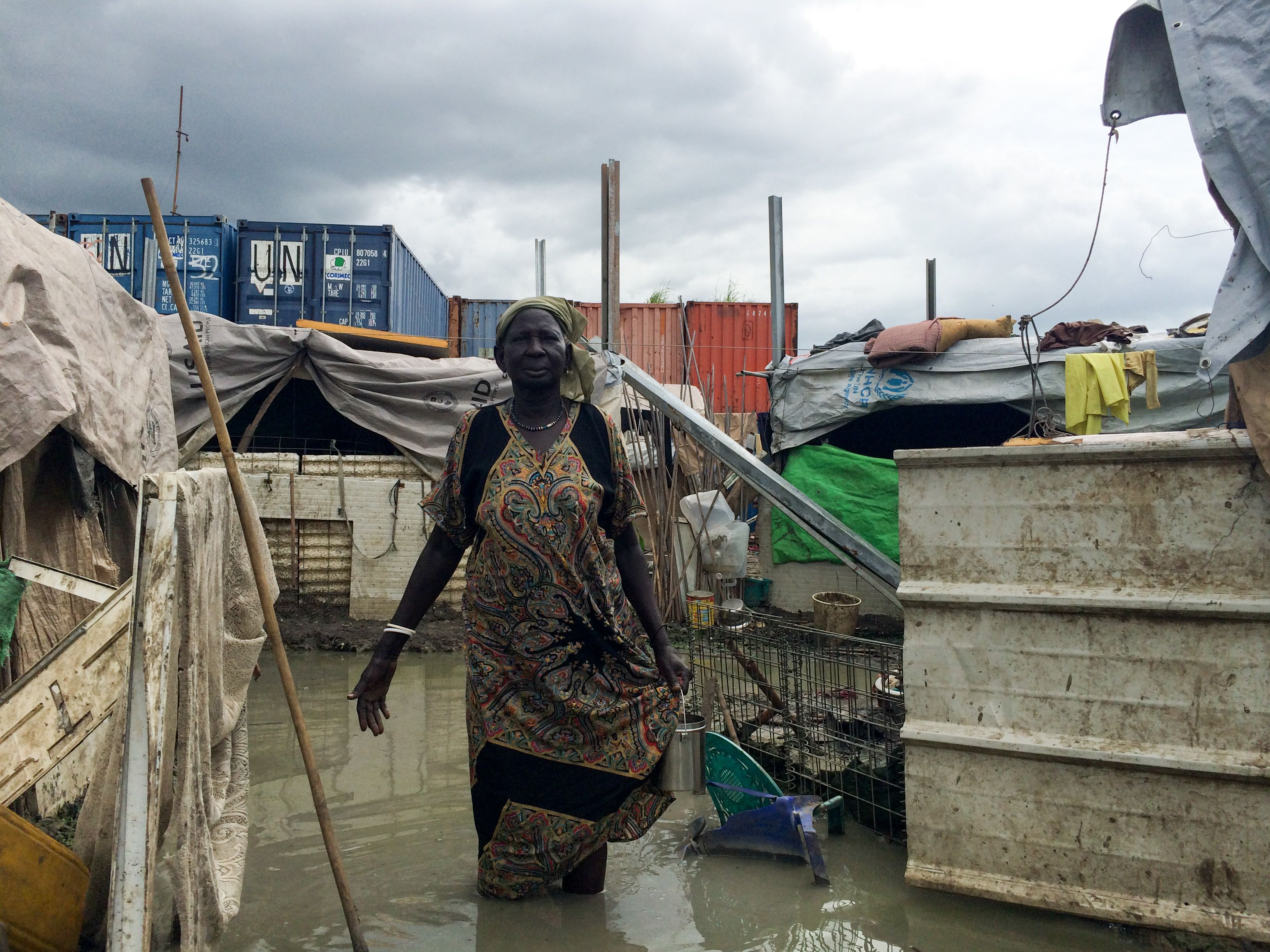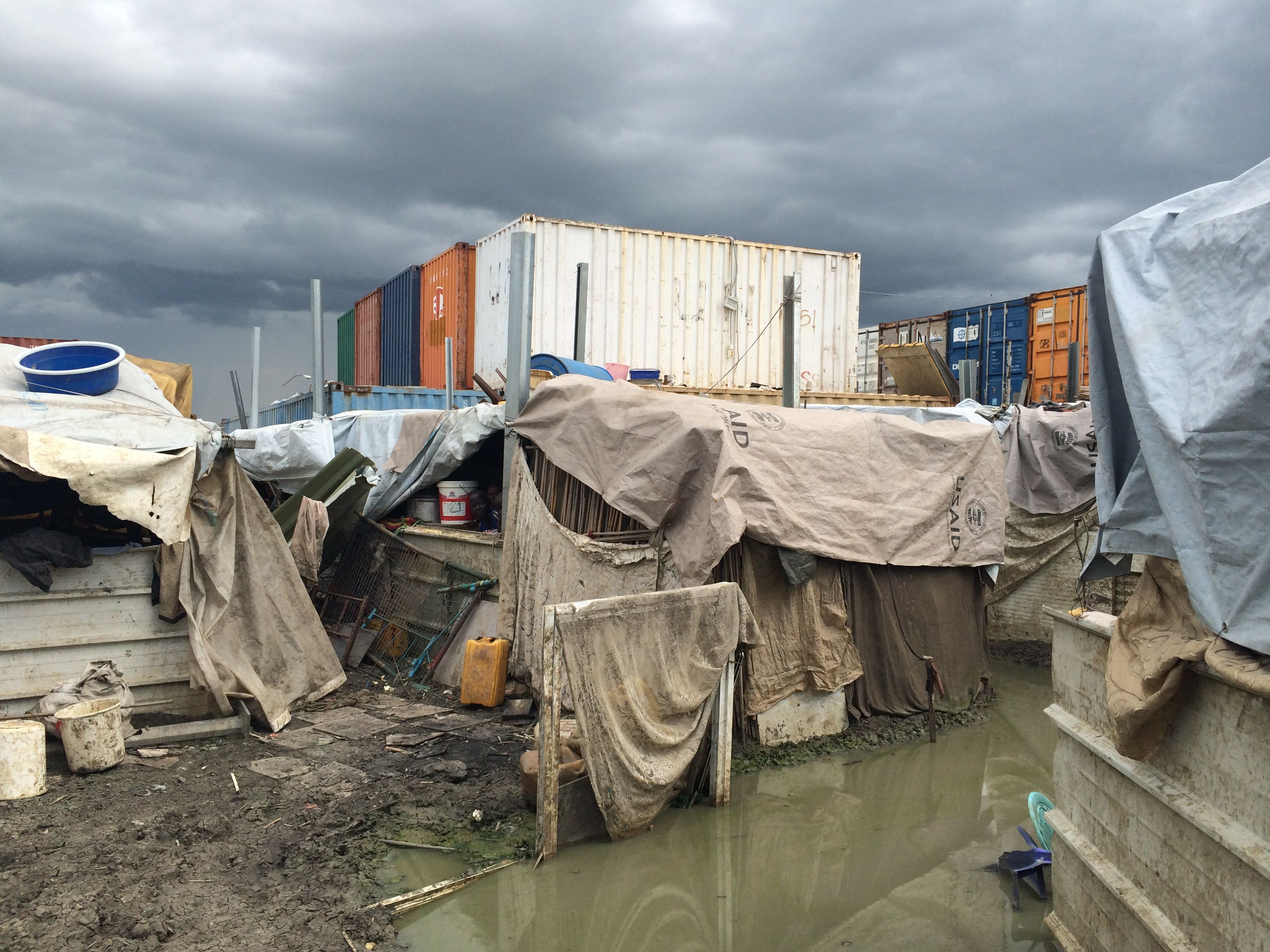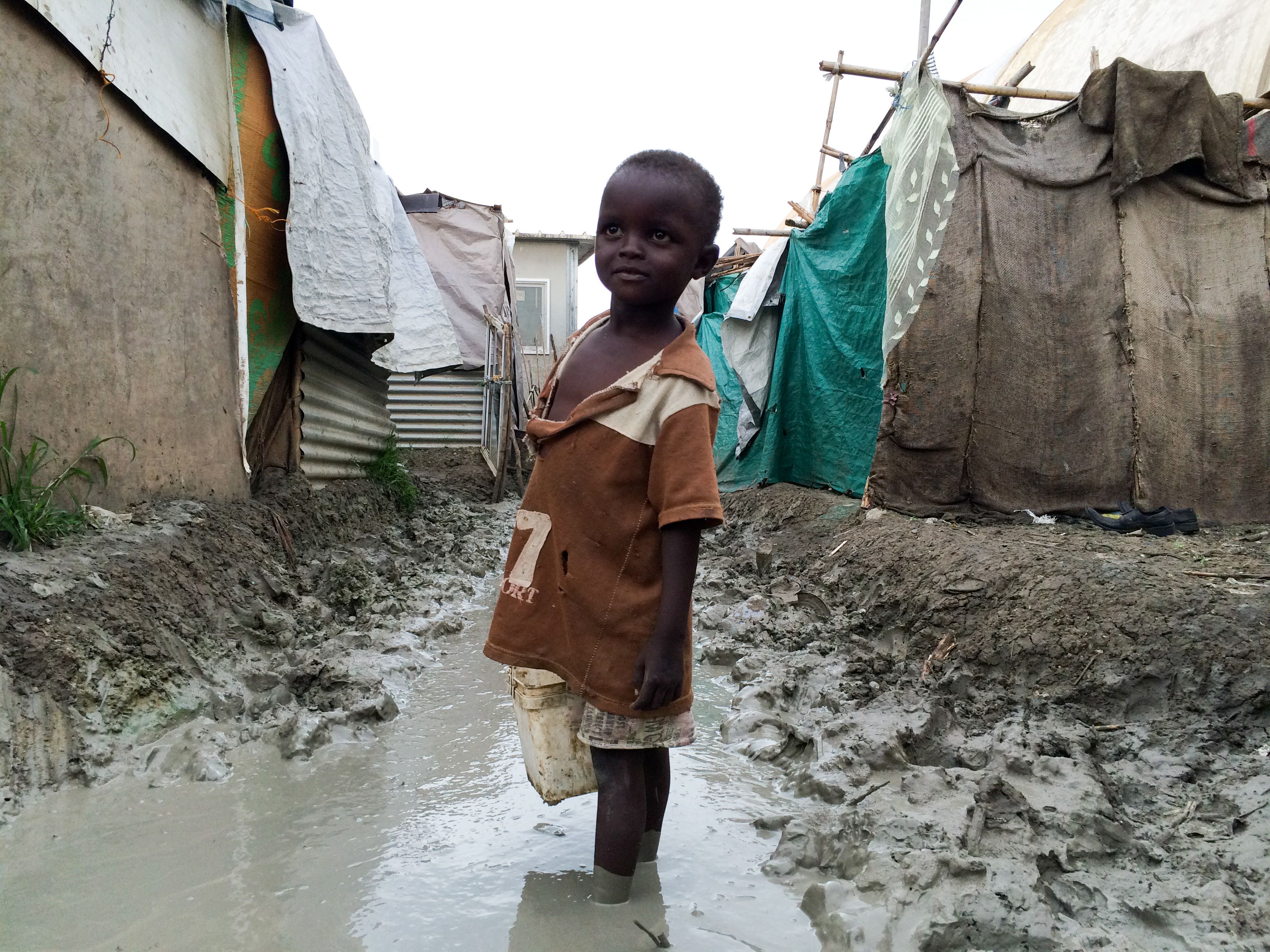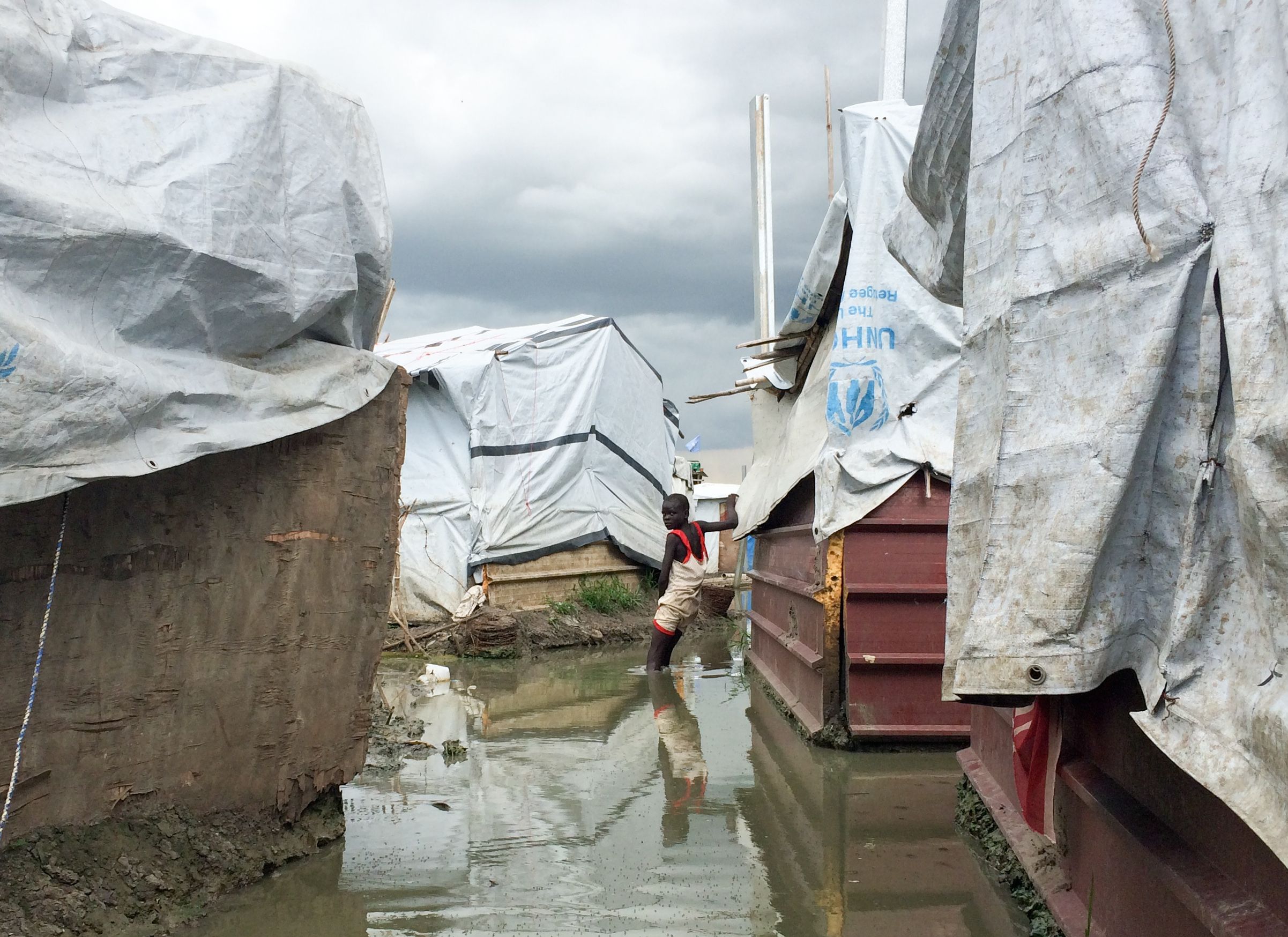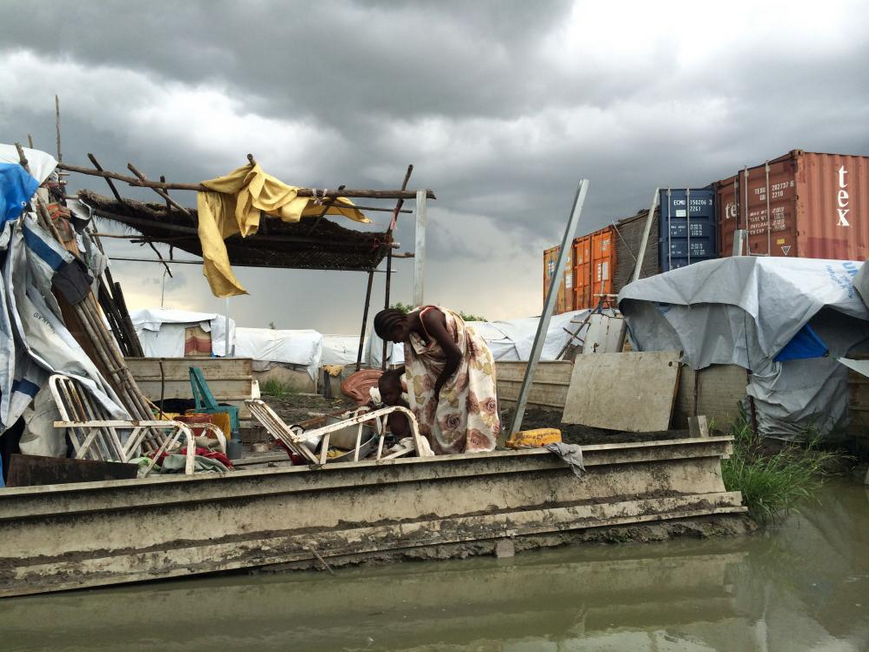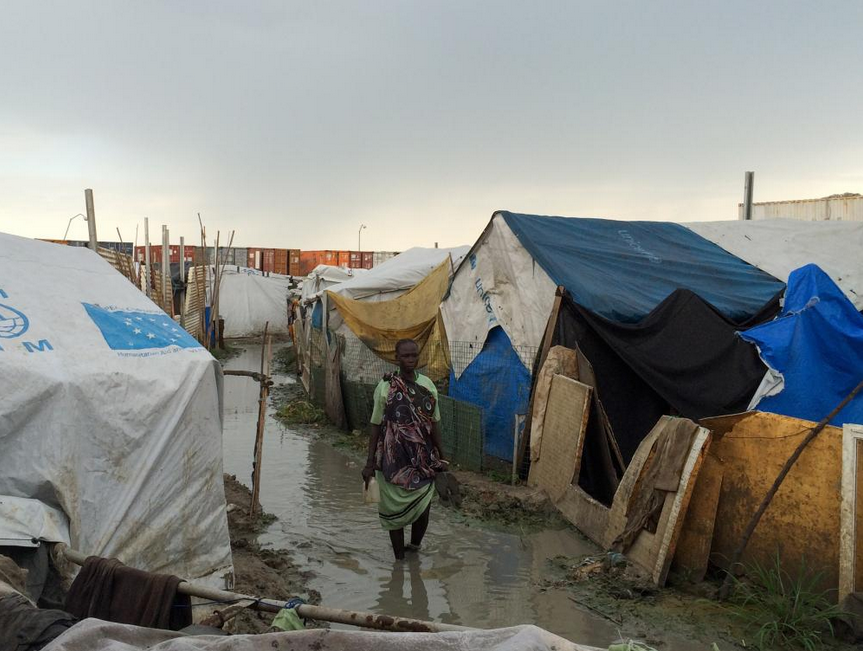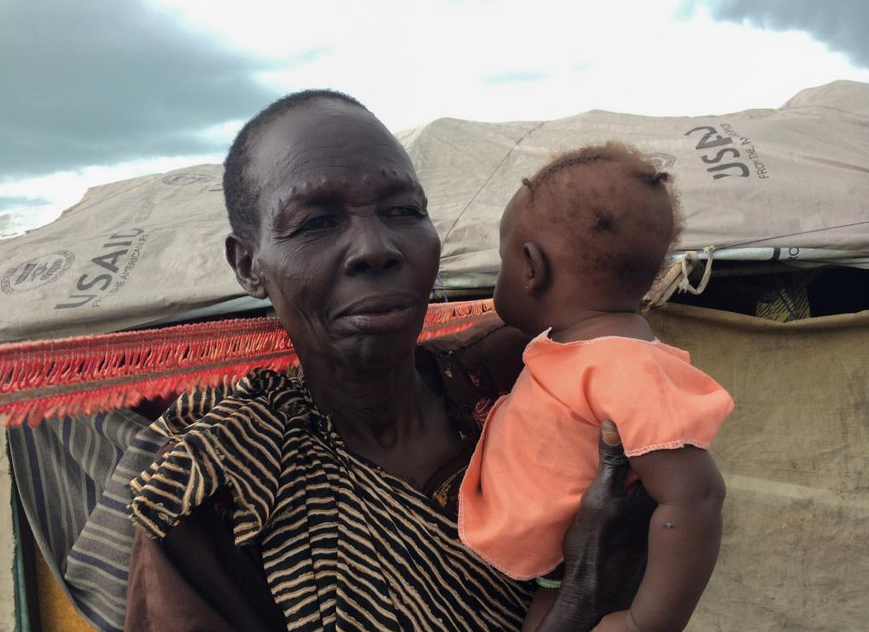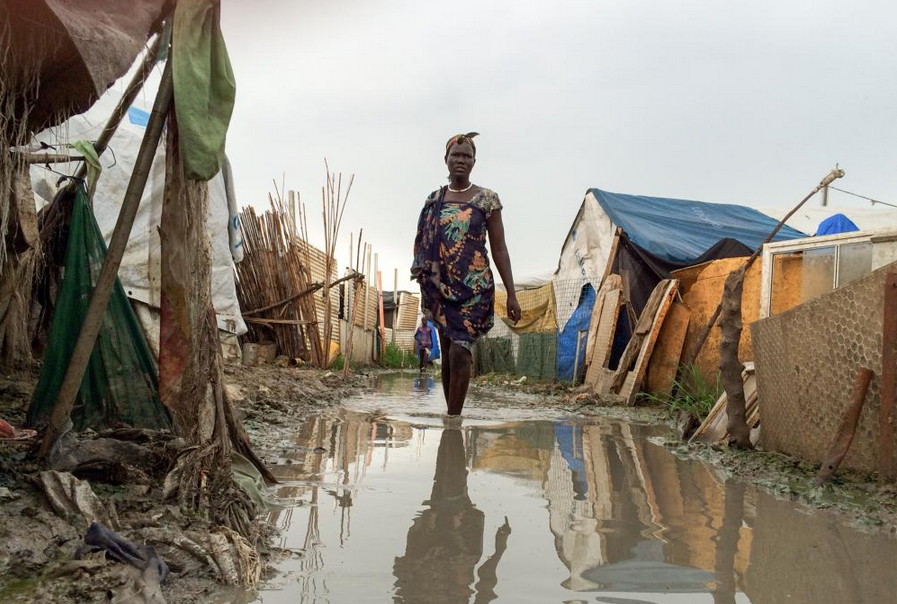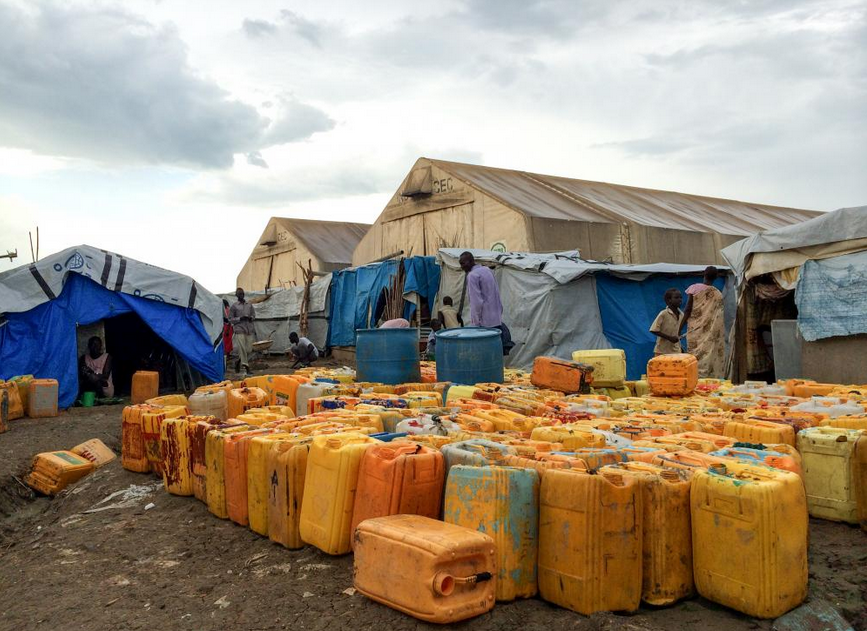September 04, 2014 | Pulitzer Center
When civil war broke out here in December 2013, the UN mission made the unprecedented decision to open its bases to fleeing civilians. Since the bases were not designed to house civilians, however, the conditions in the impromptu camps quickly deteriorated. In Malakal, a base now designated for "protection of civilians" (POC), more than half of the 17,000 currently living in the site have been moved to new camps on higher ground, but thousands continue to live partially submerged in contaminated water.
